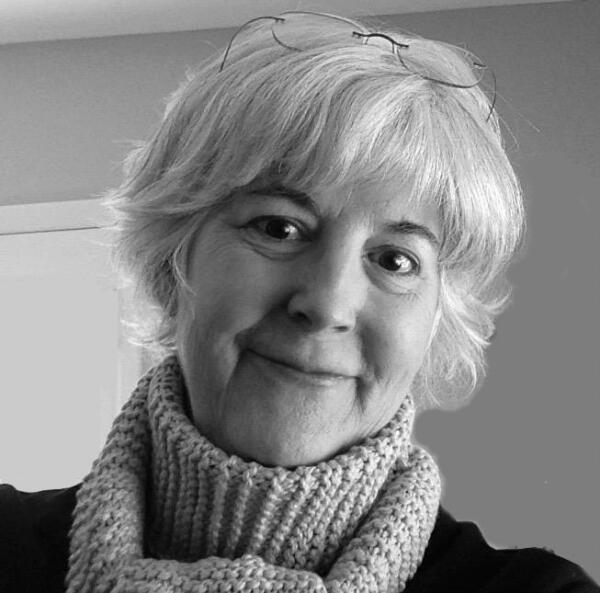
“Seven Ways to Say Pain” (fragment)
by Mónica Velásquez Guzmán
Translated by Janet McAdams
Possibility 1
Today, Mónica, I’d like to make you ill for a long time, mortally,
withdraw you far from the world, convalescent;
separate body from its crying, its lonely sweat
so that everything’s left, right now, really empty
and a spiteful desert determined to poison itself with thirst.
Today I want to break a crucial bone in you
to spread the fundamental skeleton’s splinters
for you to beg for help and extend your hand wide
and have no steps or feet to take them.
I want an ulcer to recount your fury
ungainly muscles crying out for
embraces that don’t come
epilepsies revealing your confusion
your trouble keeping your temper
endless insomnia to survive dreams
that forecast when someone is about to die.
Not any consolation, that’s what I want to give you,
to make visible your need for another
so they see you in pain, split you up, know you
and bury you, weep for you, forgive you
even if your death saves no one,
the wind dispels your name, everything’s almost the same.
Too much, the weight in your shadow
and I want to cure you, slowly, with my spit. . .
I want to restore to you balance second to none
to whisper to you that there’s no need,
that you don’t have to die like this.
1
There
in the vacuum’s deep air
your body deep in the earth
that vertigo is an old ritual
it leaps toward you
as toward your tomb
one rib
finds its partner beneath the rubble
beyond the undefinable smell
the body’s fluids
gather, know each other,
begin to touch . . .
2
From mass graves
the disappeared, the erased
heartbreak’s loved ones
the ones you buried inside yourself
the ones from your own graveyard
they begin a song
perhaps an arm reaches to a hand
to recognize its own
maybe they are building a language
maybe they’re arranging their body
maybe
they say
Siete maneras de decir el dolor
(fragmento)
Posibilidad 1
Hoy quisiera, Mónica, enfermarte larga, mortalmente,
sacarte lejos del mundo, convaleciente:
distanciar del cuerpo su llanto, su sudor solitario
de manera que todo quede, ahora sí, bien vacío
y ser un desierto rencoroso resuelto a envenenarse de sed.
Quiero hoy quebrarte un hueso imprescindible
esparcir las astillas de la estructura fundamental
que implores ayuda y extiendas anchas las manos
y no tengas pasos ni pies para darlos.
Quiero una úlcera que cuente de tu furia
músculos torpes pidiendo a gritos
abrazos que no han de venir
epilepsias que transparenten tu confusión
tu dificultad para contenerte
insomnio eterno para salvarte de los sueños
que anuncian cuando alguien va a morir.
Ningún consuelo, eso quiero darte,
para hacer visible tu necesidad de otro
para que te vean dolerte, partirte en pedazos y se sepa
y te sepulten, te lloren, te perdonen
aunque a nadie salve tu muerte,
el viento aleje tu nombre, todo sea casi igual.
Hay demasiado peso en tu sombra
y yo quiero curarte, lenta, con mi saliva…
Quiero restablecerte la balanza aún sin par
murmurarte que no hace falta,
que no hace falta morir así.
1
Ahí
en el aire profundo del vacío
tu cuerpo en el fondo de la tierra
ese vértigo es un rito antiguo
salta el paso hacia ti
como a tu tumba
una costilla
encuentra su par bajo los escombros
por encima del olor indefinible
los líquidos de un cuerpo
se reúnen, se reconocen
empiezan a tocarse…
2
Desde las fosas comunes
las desaparecidas, las borradas
las amadas del desamor
las que enterraste dentro de ti
las de tu propio cementerio
empiezan una canción
tal vez un brazo alcance su mano
la reconozca suya
tal vez estén fundando un idioma
tal vez ordenen su cuerpo, su alma
tal vez
dicen…
This week’s Poesía en acción feature also includes:
A micro-interview with Janet McAdams

Mónica Velásquez Guzmán’s poetry books include Tres nombres para un lugar (1995); Fronteras de doble filo (1998); El viento de los náufragos (2005); Hija de Medea (2008 National Poetry Award Yolanda Bedregal), La sed donde bebes (2011) and Abdicar de lucidez (2016). She edited the anthology, Bolivian Poetry of the 20th Century: Ordering the Dance (LOM Chile, 2004). As a literary critic, she is the author, among others, of Múltiples voces en la poesía de Francisco Hernández, Blanca Wiethüchter y Raúl Zurita (El Colegio de México 2009), Demoniaco afán (Plural-Pittsburgh 2010), and the thirteen-volume collection of Bolivian poetry La crítica y el poeta (UMSA 2010-2020). She has a doctorate in Hispanic literature from El Colegio de México and currently teaches in the Literature Department at UMSA.

Janet McAdams is the author of the poetry collections Feral and The Island of Lost Luggage, which won the American Book Award. Her chapbook of prose poems, Seven Boxes for the Country After, won the Wick Chapbook competition and was published in 2016. Her translations of the Bolivian poet Paura Rodríguez Leytón have appeared in Anomaly, Kestrel, Pank, and other magazines. She teaches at Kenyon College, where she is the Robert P. Hubbard Chair in Poetry.
Poesía en acción is an Action Books blog feature for Latin American and Spanish poetry in translation and the translator micro-interview series. It was created by Katherine M. Hedeen and is currently curated and edited by Olivia Lott with web editing by Paul Cunningham.